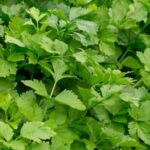The key to maintaining a healthy and thriving vegetable garden lies in the proper irrigation systems. Without it, the challenges of watering vegetable gardens can be overwhelming and may result in poor plant growth.
Irrigation systems for vegetable gardens are essential for providing consistent and efficient watering, which is crucial for the overall health of the plants. This article will discuss the importance of irrigation systems in vegetable gardens, the different types available, their benefits, factors to consider when choosing one, installation and maintenance tips, troubleshooting common issues, as well as innovative options to explore.
Vegetable gardens require regular and even watering to ensure that they grow properly and produce a good yield. Without an effective irrigation system in place, gardeners often find it difficult to meet these needs. Inconsistent watering can lead to stunted growth, poorly developed fruits or vegetables, and an increased risk of disease. The use of proper irrigation systems can significantly alleviate these challenges.
In this article, we will explore various types of irrigation systems suitable for vegetable gardens such as drip irrigation, sprinkler systems, and soaker hoses. We will also delve into the benefits of utilizing these systems including water conservation and promoting healthy plant growth. Additionally, we will provide guidance on how to choose the most suitable irrigation system for your specific garden’s size, water source available, types of vegetables being grown, and budget considerations.
Types of Irrigation Systems for Vegetable Gardens
Irrigation systems play a crucial role in maintaining the health and productivity of vegetable gardens. Without a proper irrigation system, watering vegetable gardens can be a challenging and time-consuming task. Fortunately, there are various types of irrigation systems that are specifically designed for vegetable gardens, making the process much more efficient and effective.
One of the most popular types of irrigation systems for vegetable gardens is drip irrigation. This method involves slowly dripping water directly to the base of plants, minimizing water waste through evaporation or runoff. Sprinkler systems are also commonly used in larger vegetable gardens, as they can provide adequate coverage for a wide area. Soaker hoses, on the other hand, deliver water directly to the soil surface, ensuring that plant roots receive sufficient moisture.
Using irrigation systems in vegetable gardens offers several benefits. Firstly, it helps conserve water by delivering precise amounts only where it is needed. Additionally, these systems provide consistent and even watering, promoting healthy plant growth and reducing the risk of disease. With the right irrigation system in place, vegetable gardeners can ensure that their plants receive the proper amount of moisture to thrive.
| Type of Irrigation System | Main Benefits |
|---|---|
| Drip Irrigation | Conserves water by minimizing waste |
| Sprinkler Systems | Provides adequate coverage for larger areas |
| Soaker Hoses | Delivers water directly to the soil surface |
When deciding on an irrigation system for a vegetable garden, several factors should be taken into consideration. The size of the garden, available water source, type of vegetables being grown, and budget considerations all play a role in determining the most suitable system. With careful planning and proper installation, an effective irrigation system can significantly benefit any vegetable garden.
Benefits of Using Irrigation Systems in Vegetable Gardens
Irrigation systems are essential for maintaining healthy and thriving vegetable gardens. Without a proper irrigation system, it can be challenging to ensure that your vegetables receive the consistent and adequate watering they need to grow. In this section, we will explore the various benefits of using irrigation systems in vegetable gardens.
There are several benefits of using irrigation systems in vegetable gardens, including:
- Conserving water: Irrigation systems are designed to deliver water directly to the roots of plants, reducing water waste and promoting efficient water usage.
- Providing consistent and even watering: Drip irrigation, sprinkler systems, and soaker hoses help ensure that your vegetables receive the right amount of water at the right time, promoting healthy plant growth.
- Promoting healthy plant growth: Properly irrigated plants are less stressed and more resistant to disease and pests.
- Reducing the risk of disease: Overhead watering can lead to foliage diseases in vegetable gardens, but utilizing drip or soaker systems helps keep the leaves dry and reduces the risk of disease.
To maximize these benefits in your own garden, consider installing an irrigation system that suits your specific needs. Whether you have a small raised bed or a large plot for growing a variety of vegetables, there is an irrigation system that can help you efficiently maintain your garden’s health.
By choosing the right system for your garden size, water source, types of vegetables being grown, and budget considerations, you can reap the rewards of a lush and productive vegetable garden.
Factors to Consider When Choosing an Irrigation System
When it comes to choosing the right irrigation system for your vegetable garden, there are several factors that should be taken into consideration. The first factor to consider is the size of your garden. Larger vegetable gardens may require a more extensive irrigation system, such as a sprinkler system, while smaller gardens may be adequately served by soaker hoses or drip irrigation.
Another important factor to consider is the water source for your irrigation system. Whether you have access to a well, municipal water, or rainwater collection system will impact the type of irrigation system that is best suited for your vegetable garden. Additionally, the type of vegetables being grown should also be considered. Some vegetables may have specific watering requirements and may benefit from a particular type of irrigation system.
Budget considerations are also essential when choosing an irrigation system for your vegetable garden. While some systems can be quite costly to install, others offer more affordable options without sacrificing quality and effectiveness. It’s important to weigh the initial investment against long-term benefits and water savings that can come from an efficient irrigation system.
By carefully considering these factors, you can ensure that you choose the best irrigation system for your vegetable garden that will promote healthy plant growth and make the most efficient use of water resources. Whether it’s drip irrigation, sprinkler systems, or soaker hoses, selecting the right one for your unique needs will lead to a bountiful and thriving vegetable garden while conserving water resources effectively.
How to Install an Irrigation System in Your Vegetable Garden
Installing an irrigation system in your vegetable garden is a crucial step in ensuring the health and productivity of your plants. A well-designed irrigation system can provide consistent and even watering, promote healthy plant growth, and reduce the risk of disease. When choosing the right irrigation system for your vegetable garden, it’s essential to consider factors such as garden size, water source, type of vegetables being grown, and budget considerations.
One of the most popular types of irrigation systems for vegetable gardens is drip irrigation. This system delivers water directly to the base of the plants, minimizing evaporation and water waste. To install a drip irrigation system in your vegetable garden, you will need to first plan out the layout of your garden and determine where to place the drip lines.
Using a supply tubing, connect the main water source to the drip tubing and install emitters near each plant. It is recommended to install a filter and pressure regulator to ensure that the system operates efficiently.
Another option for installing an irrigation system in your vegetable garden is using sprinklers or soaker hoses. Sprinkler systems are easy to install and work well for gardens with rows of crops, while soaker hoses are ideal for delivering water directly to the base of plants in raised beds or smaller garden areas. When installing sprinklers or soaker hoses, it’s important to position them correctly to ensure that each area of your garden receives adequate water coverage.
| Benefits | Description |
|---|---|
| Conserves water | Drip systems can save up to 50% more water compared to traditional watering methods. |
| Provides consistent and even watering | This promotes healthy plant growth by avoiding overwatering or underwatering. |
| Promotes healthy plant growth | Adequate and consistent moisture levels promote strong root development and overall plant health. |
| Reduces risk of disease | Avoids overhead watering which can lead to fungal diseases on leaves. |
Maintenance of Irrigation Systems
Maintaining your irrigation system is crucial to ensure that it continues to work efficiently and effectively in watering your vegetable garden. Proper maintenance not only helps to prevent water waste but also extends the lifespan of your system. In this section, we will discuss the key aspects of maintaining irrigation systems for vegetable gardens.
Regular Checks for Leaks or Clogs
One of the most important maintenance tasks for any irrigation system is to regularly check for leaks and clogs. Leaks can lead to water wastage while clogs can disrupt the flow of water to your plants. Inspect all components of your system including pipes, hoses, and emitters for any signs of leaks or blockages. Addressing these issues promptly can prevent further damage and ensure that your plants receive adequate water.
Winterizing the System
As the winter season approaches, it is essential to winterize your irrigation system to protect it from potential damage caused by freezing temperatures. This involves draining all water from the system to prevent freezing and cracking of pipes and fittings. Additionally, insulation may be necessary for certain parts of the system to shield them from extreme cold. Proper winterization will help maintain the integrity of your irrigation system during the off-season.
Replacement of Worn Out Parts
Over time, components of your irrigation system may wear out due to use or environmental factors. It is important to regularly inspect these parts such as nozzles, valves, and filters, and replace them when necessary. Worn out parts can compromise the efficiency of your system and affect its watering capabilities. By replacing these parts as needed, you can ensure that your irrigation system continues to function optimally.
By following these maintenance guidelines, you can help keep your irrigation systems in top condition, promoting healthy plant growth in your vegetable garden while also conserving water resources.
Troubleshooting Common Issues With Irrigation Systems
Adjusting Water Pressure
One common issue that gardeners may encounter with their irrigation systems is maintaining the correct water pressure. Too much pressure can cause damage to the system and plants, while too little pressure may result in inadequate watering. To address this issue, gardeners can install a pressure regulator to ensure a consistent and optimal level of water pressure throughout the system. It is important to regularly check and adjust the water pressure as needed to prevent any potential damage.
Dealing With Clogged Emitters
Clogged emitters can disrupt the flow of water through an irrigation system, leading to uneven watering and potential damage to plants. To address this issue, gardeners should routinely inspect their irrigation system for clogged emitters and clean them as necessary. Using a small pin or wire, gently unclog any debris that may be obstructing the emitter. Additionally, installing a filter in the irrigation system can help prevent clogging issues in the first place.
Fixing Leaks
Leaks in an irrigation system not only waste water but also diminish the effectiveness of the system in properly watering vegetable gardens. Gardeners should regularly inspect their irrigation system for any signs of leaks, such as puddles or wet spots. When leaks are detected, they should be promptly repaired by replacing damaged or worn out parts such as hoses, connectors, or valves. Conducting regular maintenance checks can help identify and fix leaks before they escalate into larger problems.
By addressing these common issues with irrigation systems for vegetable gardens, gardeners can ensure that their systems are functioning effectively and providing proper hydration for their plants. With proper troubleshooting and maintenance, using irrigation systems can significantly enhance the health and productivity of vegetable gardens while conserving water and promoting sustainable gardening practices.
Innovative Irrigation Systems for Vegetable Gardens
When it comes to maintaining a healthy vegetable garden, having an efficient irrigation system is crucial. There are several innovative irrigation systems available that can make the process of watering your vegetable garden much easier and more effective. Here are some of the most innovative irrigation systems for vegetable gardens:
- Smart irrigation controllers: These controllers use weather data and soil moisture levels to automatically adjust the watering schedule, ensuring that your plants receive the right amount of water at the right time. This not only conserves water but also promotes healthier plant growth.
- Rainwater harvesting systems: These systems collect rainwater from your roof and store it in a tank for later use in watering your vegetable garden. This sustainable approach to irrigation not only reduces your water bills but also provides a natural source of water for your plants.
- Automated drip systems with timers: Drip irrigation is already an efficient way to water vegetable gardens, but adding a timer to the system takes it to the next level. With a timer, you can schedule specific watering times and durations, ensuring that your plants receive consistent and even watering without any effort on your part.
By incorporating these innovative irrigation systems into your vegetable garden, you can ensure that your plants receive the proper amount of water while also conserving this precious resource. Whether you choose a smart controller, a rainwater harvesting system, or an automated drip system with timers, investing in an innovative irrigation system will benefit both your garden and the environment.
Conclusion
In conclusion, the use of irrigation systems in vegetable gardens is essential for maintaining healthy and thriving plants. Without a proper irrigation system, vegetable gardens face challenges such as inconsistent watering, water wastage, and the increased risk of disease. However, by utilizing efficient irrigation systems such as drip irrigation, sprinkler systems, or soaker hoses, gardeners can ensure that their crops receive the right amount of water at the right time.
The benefits of using irrigation systems in vegetable gardens are numerous. Not only do they conserve water and provide consistent watering, but they also promote healthy plant growth and reduce the risk of disease. Additionally, factors such as garden size, water source, type of vegetables being grown, and budget considerations should be taken into account when choosing the appropriate irrigation system for a vegetable garden.
Ultimately, for those considering installing an irrigation system in their vegetable gardens, it is important to weigh the benefits and potential savings against the initial investment. With proper maintenance and troubleshooting techniques in place, innovative options like smart irrigation controllers or rainwater harvesting systems can also be considered to further improve efficiency and sustainability.
Therefore, it is highly encouraged for all gardeners to seriously consider investing in an irrigation system for their own vegetable gardens to ensure successful and fruitful harvests season after season.

If you’re looking to get into vegetable gardening, or are just looking for some tips on how to make your current garden better, then you’ve come to the right place! My name is Ethel and I have been gardening for years. In this blog, I’m going to share with you some of my best tips on how to create a successful vegetable garden.





